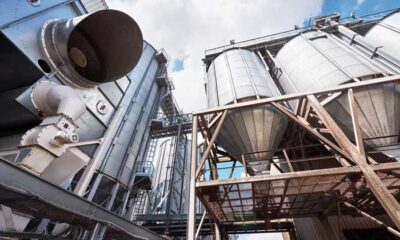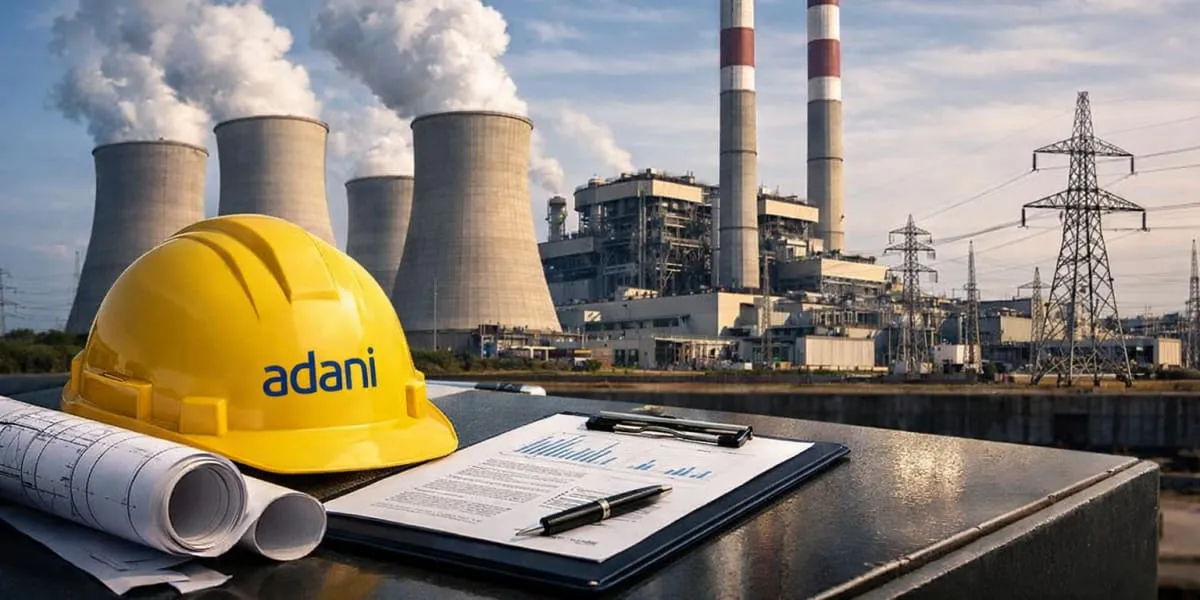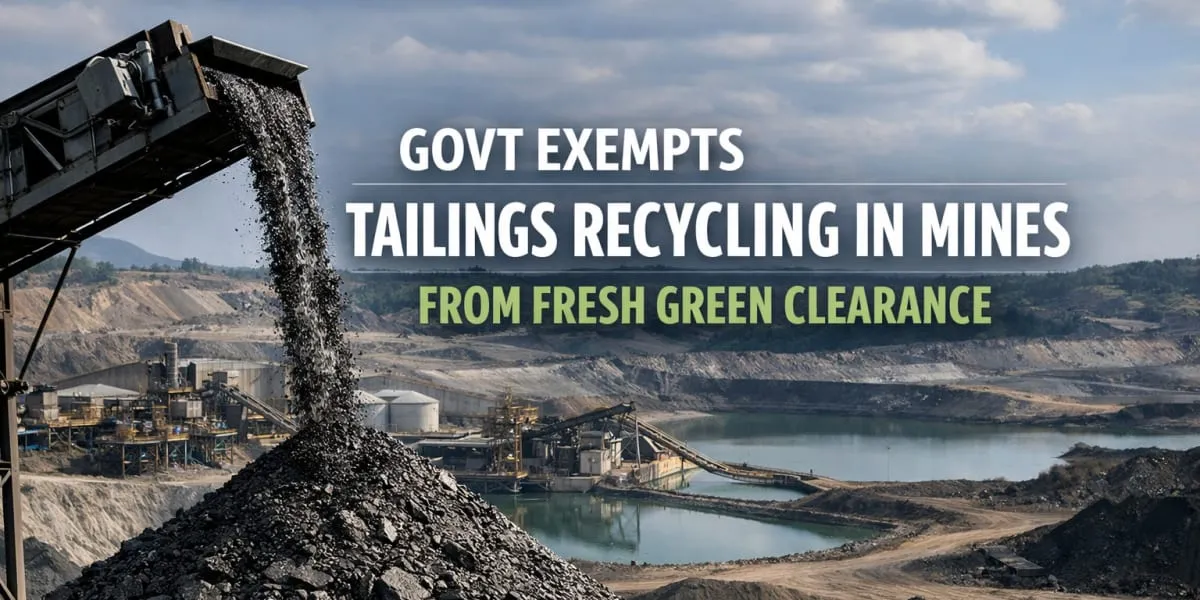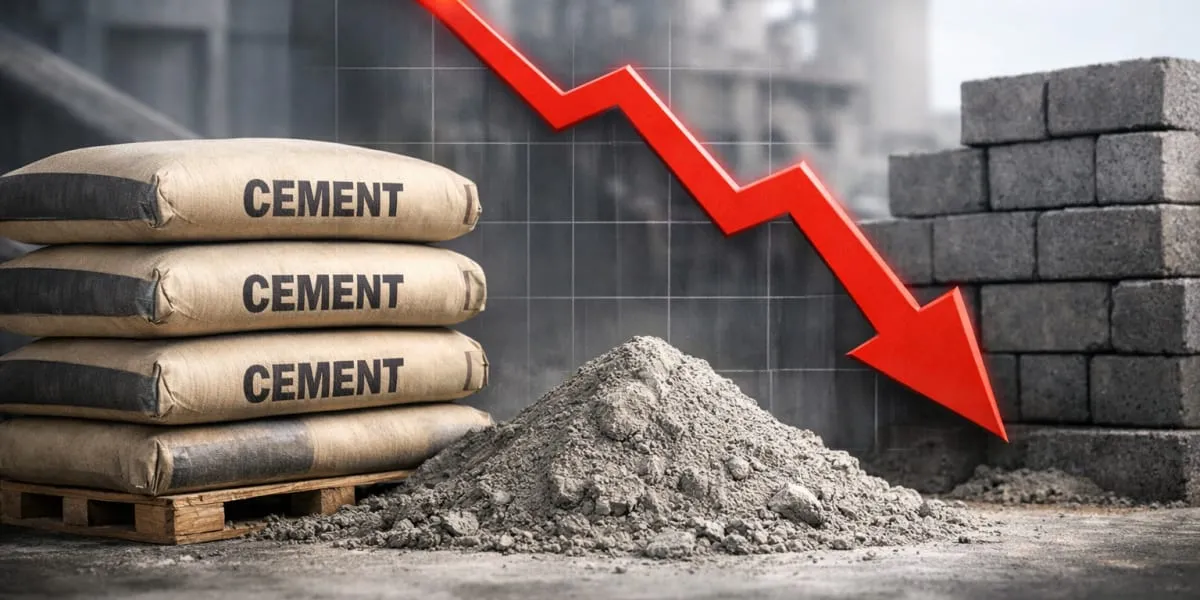The central government has exempted tailings recycling in mines from the requirement of a fresh environmental clearance, citing an effort to streamline approvals and promote resource efficiency.
The decision is intended to simplify regulatory procedures for operators seeking to process existing mine waste for recovery of minerals and other materials.
Officials indicated that the move should reduce administrative delays while maintaining compliance with existing safeguards.
Authorities said existing environmental safeguards would continue to apply to recycling operations.
Tailings recycling refers to the recovery of valuable materials from the fine waste generated by mining operations and the subsequent reprocessing of material to reduce the volume stored in tailings facilities.
Advocates argue that recycling can recover metals and minerals, lower the demand for new ore extraction and reduce the footprint of waste storage.
The policy change is expected to encourage the adoption of technologies that convert legacy waste into usable inputs for industry.
The mining industry welcomed the exemption as a way to accelerate projects and improve economics, while environmental groups urged robust conditions to prevent adverse impacts.
Conservation organisations stressed the importance of rigorous monitoring, independent audits and clear standards for waste handling and water management.
Regulators are likely to frame the exemption with specific compliance requirements to balance economic and environmental objectives.
Industry sources indicated that the move could attract investment in processing plants and associated infrastructure.
The change may prompt states and permitting authorities to update their frameworks to reflect the central clearance position and to clarify oversight roles.
Observers noted that effective implementation will depend on transparent reporting, enforcement capacity and investment in rehabilitation of legacy sites.
The long term outcome will hinge on whether recycling reduces the environmental risks associated with tailings while supporting a circular approach in the mining sector.
Stakeholders called for clear timelines for compliance.


 Concrete1 month ago
Concrete1 month ago
 Concrete4 weeks ago
Concrete4 weeks ago
 Economy & Market4 weeks ago
Economy & Market4 weeks ago
 Concrete4 weeks ago
Concrete4 weeks ago





















